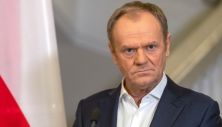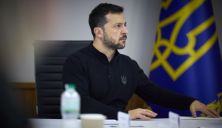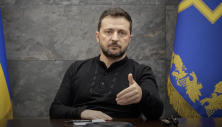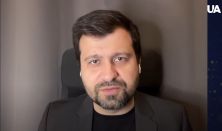The Letters of Peace were sent to the 13 heads of local churches by Metropolitan Epiphanius of Kyiv and All Ukraine after receiving Tomos on Jan. 6. But the official decisions of their Synods to recognize the Orthodox Church of Ukraine were not followed.
The hierarchy of Orthodox churches is recorded in the diptych. This prayer for the ruling hierarchy is ordered according to the church’s privilege, date of creation, or the date it received the Tomos of autocephaly. After the Ecumenical Patriarchate, the oldest eastern autocephalies are Alexandria, Antioch, and Jerusalem.
The Patriarch of Alexandria is the only one holding the titles of the Pope and the Judge of the Universe in the Orthodox world. He studied in Ukraine and has supported Metropolitan Onufriy numerous times. The Patriarch also urged that everything be done in order to avoid conflicts over church issues in Ukraine.
The Antioch patriarchate is adamant. Meanwhile, the position of the Jerusalem Patriarchate is ambiguous.
“On the one hand, the Moscow Patriarchate, which owns a great deal of real estate in Israel and the Palestinian territories, provides some assistance to Jerusalem. On the other hand, they owe it to the Patriarch of Constantinople, for solving the crisis last year, when the Synod came out against the Patriarch and he was made to retire – and Patriarch Theophilos became the new Patriarch,” director of the Center of Religious Security Dmytro Horevyi said.
The Church of Greece may be the first to recognize the Orthodox Church of Ukraine. The churches of Cyprus and Albania also support Constantinople.
“The synod said in their decision, the Ukrainian Church’s autocephaly was obtained in a canonical manner, in due process. They don’t want to fight with Moscow, because there are 800,000 Russian tourists in Cyprus. This is their core income,” Professor at Philosophy Institute Oleksandr Sahan said.
“In May 2018, Patriarch Kirill went to Albania. The Archbishop of Albania – the head of the church – said, ‘You know, only because you have the largest church, and that a powerful state supports you, does not justify your claim to primacy. Churches are equal,'” Horevyi said.
The Orthodox Church of Ukraine also has to gain recognition from the Russian Orthodox Church. It ranks fifth in the Constantinople Patriarchate diptych, immediately after the four ancient patriarchates.
The Serbian church has its own territorial problems, as Montenegro and Macedonia wish to separate from it. And Serbian Patriarch Irinej has criticized Ukrainian autocephaly.
“The Serbian church is suffering from ‘phantom pains,’ just like the Russian Orthodox Church. The Serbian Patriarch’s motivation was that he won the Orthodox unity prize in May last year, which was $250,000,” Horevyi said.
The Church of Romania has no complaints about the legality of the Orthodox Church of Ukraine. The Romanian population in the Bukovyna is, however, a stumbling block. Metropolitan Epiphanios agreed to create a vicariate there – an independent semi-autonomous structure featuring parishes of ethnic Ukrainians.
“There are people who want to hold service in their native language and to adhere to the calendar that they are accustomed to. Why not, if they’re under the jurisdiction of the Orthodox Church of Ukraine?” Horevyi said.
The Bulgarian and Georgian churches were among those that didn’t attend the Pan-Orthodox Council in Crete in 2016. For a long time, they were considered to be under the Russian sphere of influence.
“Based on what we’ve seen in 2018 we can state that these churches are drifting away from Moscow and no longer consider the position of the Russian Orthodox Church in their decision making. The Polish Church will also recognize it in the long-to-medium run,” Horevyi said.
Experts say it may take decades for all the churches to recognize the Orthodox Church of Ukraine. The process is hindered by Russian hybrid aggression and misinformation.
Since the formation of the united Ukrainian Orthodox Church, more than 500 parishes of the Russian Orthodox Church in Ukraine have joined.













